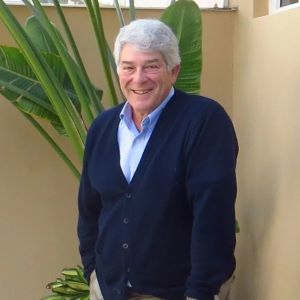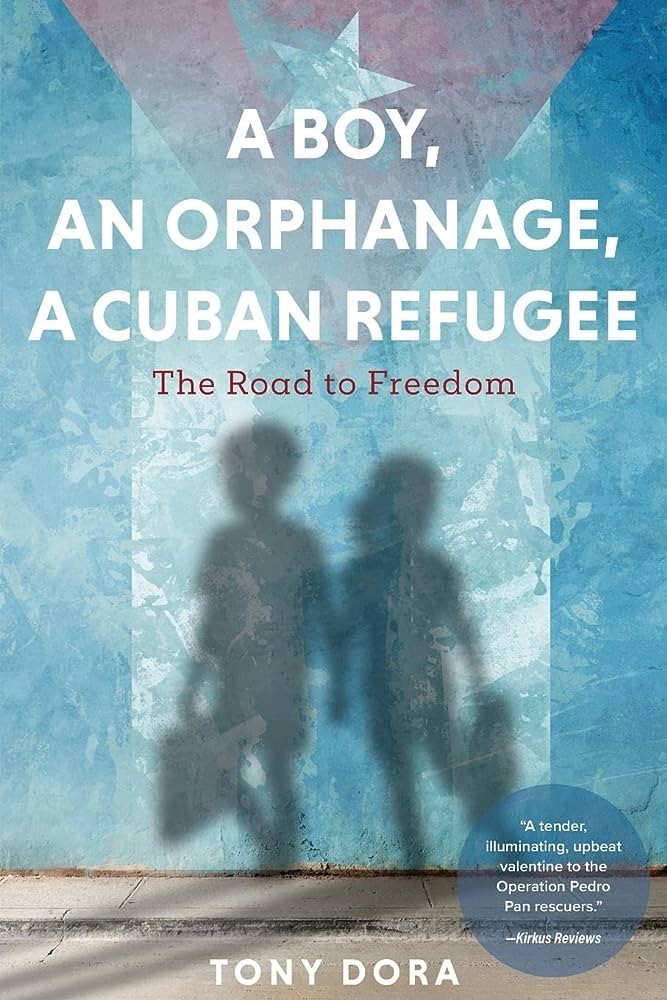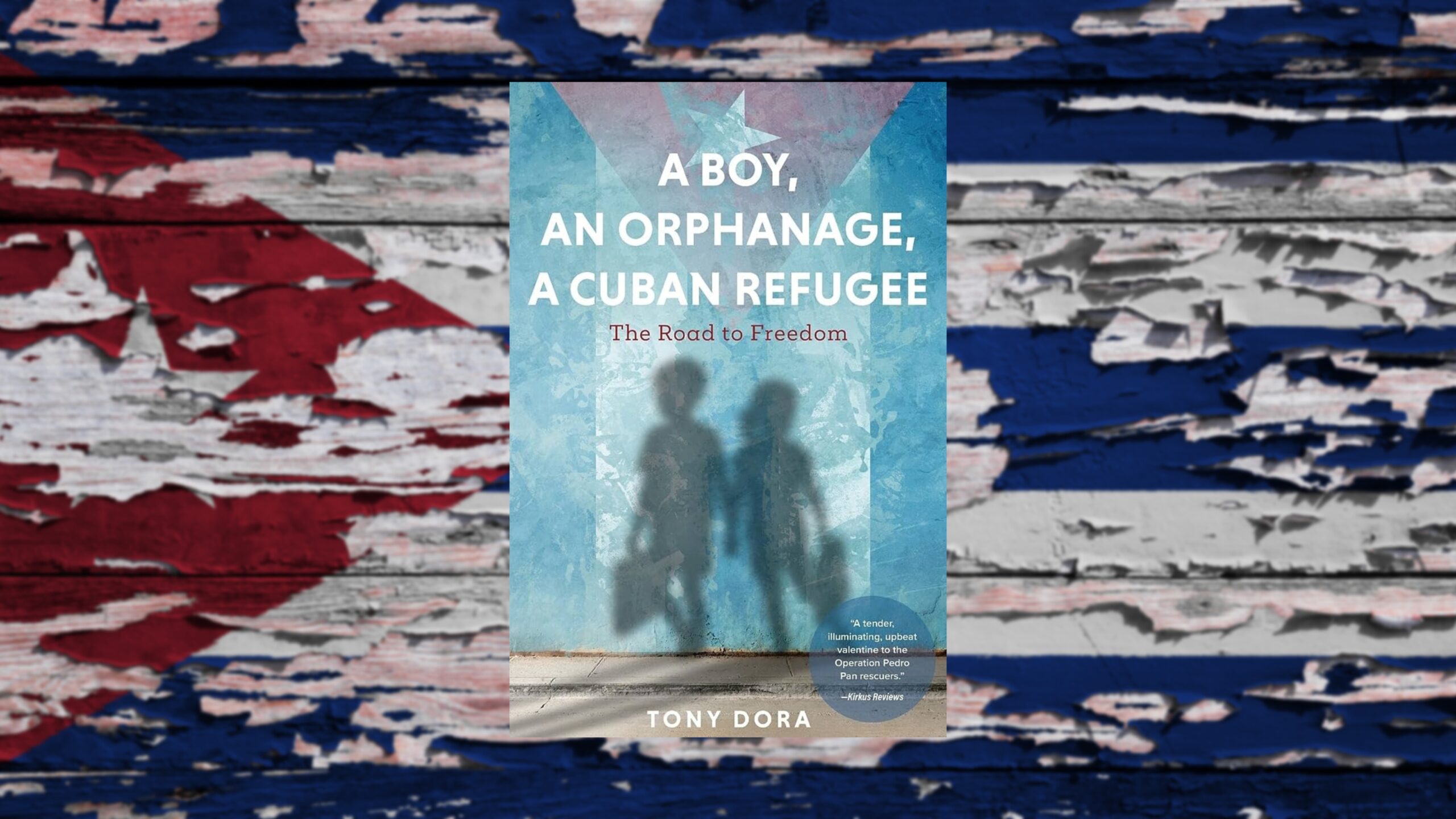A Boy, an Orphanage, a Cuban Refugee by Tony Dora
What's It About?
“A Boy, an Orphanage, a Cuban Refugee” chronicles the emotional journey of two young children fleeing Fidel Castro's tyrannical regime as they navigate life for six weeks in a refugee camp and then a year in an orphanage, until they are finally reunited with their mother.From December 1960 to October 1962, more than 14,000 unescorted children fled the tyrannical regime of Fidel Castro in what became known as Operation Pedro Pan. On March 15, 1962, two nervous yet excited children — Tony and Norma Dora — were clandestinely smuggled out on a flight to freedom in the darkness before dawn. It was a journey neither of them would ever forget.
More than 60 years later, Tony Dora looks back through the eyes of his younger self in his heartwarming memoir A Boy, an Orphanage, a Cuban Refugee (Koehler Books) that reveals the courage and fortitude of the “Pedro Pan” children who braved new horizons on American shores. As Dora makes clear early on, this was not a decision taken lightly by his mother (or any of the parents who risked sending their children ahead of them).
“Why would parents send their children, unescorted, to a foreign country where a different language is spoken, with no guarantee that they would ever see each other again?”
Under Castro’s Tyranny
It is a question his mother Nona answers by reading to then nine-year-old Tony from underground news accounts of how Cuba under Castro is a police state, where freedom no longer exists and neighbors spy on each other for the regime. This is the reason they must leave while they still can, she tells her somber son. But it is something already understood by Tony, since “children are quite aware when the current political situation is ominous.”
His memories of Cuba are haunting as he recalls how Castro’s milicianos (police force) shook down independent business owners — like his grandfather — before eventually seizing businesses and homes of people considered enemies of the state.
“Most parents will do whatever it takes to safeguard their children. No price is too steep. Thus, Cuban parents started secretly sending their offspring to the United States. My mom was one of them. Parents deemed guilty of such a crime were imprisoned. Some were executed. She was willing to pay the price.”
Tony recalls with childlike wonder the first airplane trip of his and Norma’s lives and the kindness of the people who met them at the temporary shelter and processing facility in Florida City, where they would lodge with Cuban foster parents and other unescorted children for six weeks. Despite initial homesickness and worry, the Dora children adapt to the chaos of camp life and enjoy opportunities for play and hijinks with other kids.
The Kindness of Strangers
By intertwining reconstructed dialogue with his reflections, Dora’s memoir is a cacophony of children’s voices as they come together in their surroundings. Indeed, the conversational exchanges between Tony and his new circle of friends are entertaining rather than maudlin, as he fondly recalls pranks and tricks they often played.
But the bulk of Dora’s memoir is of their next temporary home, Saint Vincent’s Orphanage in Vincennes, Indiana. Run by Catholic nuns, the orphanage offered what Florida City did not, according to Dora: discipline and structure. Dora sheds light on the language assimilation process for the Pedro Pan kids, which became a “priority … we all put our hearts and souls into.” He peppers his remembrances with his favorite nuns who taught them English (Sister Kevin, for one) and the “osmosis” process of gaining a second language within six months (“we learned by listening and repeating”).
What resounds throughout Dora’s many stories of his and Norma’s year at the orphanage — including a lot of basketball games — are the meaningful friendships and the dedicated nuns and staff who cared for them. Unlike so many horror stories of orphanage life, Dora recalls Saint Vincent’s as “a community … my community” and that he “honestly loved it there!”
Miraculous Voyage to Freedom
Dora concludes his memoir with a cinematic reunion of Tony, Norma and Nona down a long airport corridor in New Jersey, “just like in the movies,” as the Dora family begin a new chapter together.
Looking back, Dora calls it “an unfathomable and wild journey” that brought him and his sister to America, learning to speak English fluently, and doing “a little bit of growing up as well.” How did this happen, he asks? “Simple. It was magic. My mother was a magician, you see.” But he also thanks many organizations, like Catholic Charities, the U.S. State Department and many nameless individuals who made Operation Pedro Pan a reality.
A Boy, an Orphanage, a Cuban Refugee is a love letter to freedom, childhood and the kindness of strangers who welcome the refugee fleeing repression. This “miraculous voyage” will not fail to touch the hearts of readers everywhere.
 About Tony Dora:
About Tony Dora:
Tony Dora is a retired ESL teacher to adults. Prior to becoming a teacher, Tony was a commissioned officer in the US Air Force, where he was a chaplain candidate ministering to the troops. Tony also worked for the Catholic Archdiocese of New York as director for Spanish language communications. In that capacity he produced and directed syndicated TV and radio programs which were broadcast nationally via Univision and the Catholic Television Network. He was a member of the American Federation of Television and Radio Artists and the Writers Guild of America.





